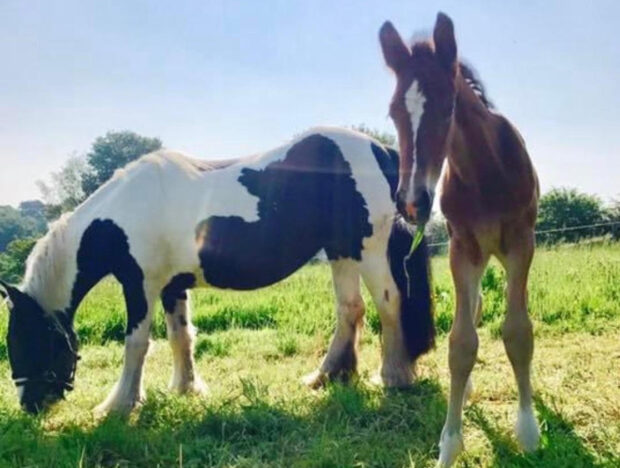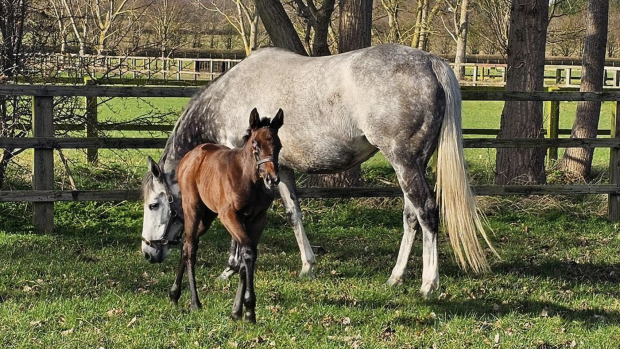Lesley Barwise-Munro is a partner at Alnorthumbria Veterinary Group, Northumbria, and is also an official FEI vet. Her main areas of expertise are lameness, respiratory disease, dentistry and how they influence performance. She tells H&H about a particularly startling case
“In September 2014, a horse owner phoned to say that his four-year-old Friesian broodmare was off colour. She had been due to foal in May, and the owner had gone out to her when he saw her getting up and down in the field.
“But he didn’t find a foal, or foetal membrane, and a few weeks later discovered what he assumed were the remnants of a foal. The mare remained her usual self until we were called out, months later.
“The situation immediately triggered alarm bells — something wasn’t adding up. I wondered if there might be more to that first foaling than the owner realised.
“The mare was stiff and off her food with a high temperature. I examined her and felt what seemed to be legs in her uterus. The cervix had closed up but I opened it, only to find a dead foal inside — it had been decaying for more than five months. It was an unbelievable finding — I was flabbergasted, not least because the mare was as well as she was.
“I had to assume it was the second of twins. It was astonishing that infection hadn’t set in, especially as the cervix had opened for the first foal, preventing the uterus from remaining a sterile environment.
“We brought her in and it took around two hours to remove all the foal’s body parts from inside her, while she was on drip sedation. We were pulling out individual bones and bits of hair, piecing the foal together on the floor. Everyone was coming to look — it was bizarre.
“The mare was at great risk of toxaemia and laminitis, and one of the foal’s rib bones had pierced her uterus. The uterus is very fragile so I had to be careful not to traumatise it as I felt around inside with my gloved hand. I found the whole thing intriguing, rather than gruesome, and I knew there was no way the mare would have survived had we not got everything out — she would have gone downhill fast.
“Eventually, it seemed that we’d got everything out — parts of dead foal were lying all over the floor. The mare was very uncomfortable that evening, but quickly became brighter. We flushed out the uterus daily until no more debris came out. The mare’s resilience was unbelievable — she returned home after 12 days. She never became ill as a result of the experience.
“To think that she had had that foal rotting inside her for months, and yet recovered so fast is unbelievable. It’s incredibly rare and goes against everything I’ve experienced as a vet.”
- Please note, the picture above is not of this particular veterinary case
You may also be interest in…

Remarkable vet stories: ‘I was faced with a choice — keep pushing my hand in to try to find the foreign body or don’t wake him up’

Subscribe to Horse & Hound magazine today – and enjoy unlimited website access all year round
Horse & Hound magazine, out every Thursday, is packed with all the latest news and reports, as well as interviews, specials, nostalgia, vet and training advice. Find how you can enjoy the magazine delivered to your door every week, plus options to upgrade your subscription to access our online service that brings you breaking news and reports as well as other benefits.



